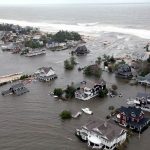New Jersey Future Blog
The Property Tax Problem
July 28th, 2006 by Tim Evans
- New Jersey’s median real estate tax bill was the highest in the nation as of the 2000 Census, more than one-third higher than second-place Connecticut. And our tax bills continue to climb each year, the direct consequence of a broken tax system that is overly reliant on property taxes and out of step with national norms.
- New Jersey’s property tax bills are higher than anywhere else, primarily because New Jersey relies more heavily on property taxes than most other states to pay for government services. In terms of the percent of total state and local tax revenue derived from property taxes in 2004, New Jersey ranks second (46.1 percent) after New Hampshire (61.9 percent), which has no income tax. The 50-state average is 30.4 percent.
- Today’s property tax reforms costs us more than money, however. It also forces municipalities to compete with each other for property tax revenues and partake in the infamous “ratables chase.”
SUPPORTING TAX REFORM, NOT JUST RELIEF
With some of the highest property taxes in the nation, New Jersey’s citizens and political leaders alike are calling for reform. Governor Jon Corzine will address a joint gathering of the New Jersey Assembly and Senate today (July 28) to kick off a special legislative session to find solutions to New Jersey’s property tax problem. The Legislature has formed committees for its special session to study school spending, public pensions and benefits, municipal service sharing, and a possible constitutional convention. Their goal is to produce a package of tax reform bills that the full legislature can consider by year’s end.
Yet if this special session produces only property tax reforms solely aimed at reducing individual homeowners’ tax bills, New Jersey will miss a golden opportunity to correct one of the most insidious damages inflicted by today’s property tax system: competition between municipalities for new nonresidential developments or tax “ratables” that improve the fiscal bottom line but that worsen traffic, suppress much-needed housing opportunities, drain older communities of resources and erase open lands. The system also leaves communities with low real estate values at an insurmountable disadvantage in funding the schools and services they need to recover and prosper. Increasingly, it causes communities to reject housing that might attract families with children, and so higher school and service costs.
New Jersey’s legislators should work to change the way taxes are collected and distributed in order to create meaningful and lasting reforms for New Jerseyans that still provides quality schools and other local services without the powerful, distorting affects that today’s tax system has on land use and quality of life. Recommendations that would help minimize inter-municipal competition for tax revenues include sharing services between municipalities; tax-base sharing, as is presently practiced in the Meadowlands; and increased state aid to municipalities, particularly for education.
A detailed analysis of the problems with the current tax system and potential solutions can be found in “Property Tax Reform and Land Use.”
For questions about this issue of Future Facts, contact Tim Evans, research director.
















